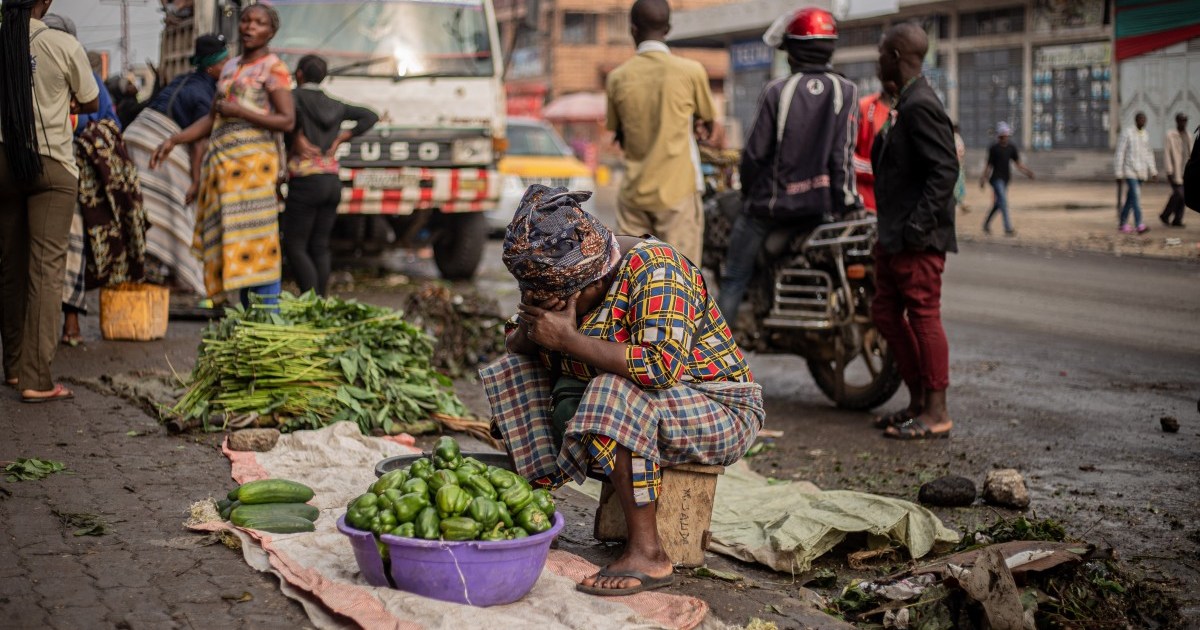Africa
Food prices skyrocket in DR Congo’s Goma after M23 takeover

The Humanitarian Crisis in Goma, DRC: Understanding the Impact
The situation in Goma, Democratic Republic of the Congo (DRC), has deteriorated significantly following the takeover by the Rwanda-backed M23 rebels, leading to a dire humanitarian crisis. Here’s a breakdown of the key issues and implications:
-
M23 Rebels and Regional Dynamics: The M23 rebels, supported by Rwanda, seized Goma, causing regional tensions. Their involvement has disrupted local governance and exacerbated existing conflicts, impacting the city’s stability and access to essential supplies.
-
Economic Impact and Food Security: The conflict has led to a dramatic increase in food prices, with essential items like flour, beans, and oil seeing price hikes of 18 to 160%. This surge, coupled with blocked supply routes, has resulted in severe shortages, pushing many families into food insecurity. Mothers, particularly those with large families, face immense challenges in providing meals, with many households reduced to one meal a day.
-
Humanitarian Aid Obstruction: Aid efforts are hampered by ongoing violence, leaving displaced populations without critical support. Organizations like ActionAid highlight that over 90% of Goma’s food comes from blocked areas, exacerbating the crisis. The interruption of aid has left tens of thousands without assistance, worsening malnutrition risks, especially for children and pregnant women.
-
Social and Economic Consequences: The conflict has disrupted livelihoods, reducing family incomes from $5 to $2 a day. This drastic drop forces families into extreme poverty, unable to afford basic necessities. The economic strain is intensifying, creating a cycle of poverty and hunger.
-
Broader Context and Projections: Pre-existing food insecurity in DRC, affecting a quarter of the population, has been exacerbated by the crisis. Projections indicate millions of children and women at risk of acute malnutrition, highlighting the urgent need for intervention.
- Path Forward and International Response: The M23’s ceasefire for humanitarian reasons offers a potential window for aid, but the situation remains volatile. Immediate aid is crucial, but sustainable solutions are needed to restore supply chains and prevent future crises. The international community must support NGOs and governments in stabilizing the region and ensuring access to essentials.
In conclusion, Goma’s crisis underscores the urgent need for humanitarian aid and sustainable solutions to address food insecurity and conflict. The focus must be on restoring supply lines, ensuring aid access, and supporting vulnerable populations to mitigate long-term impacts.











